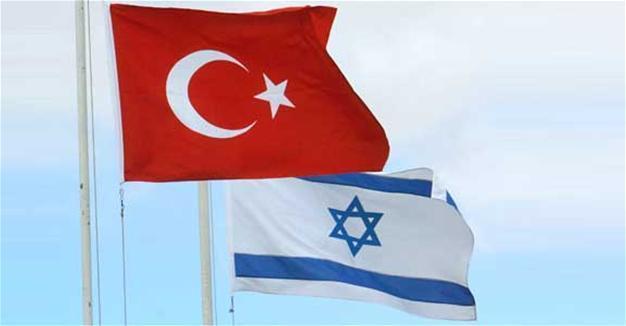Building peace and partnership through joint investments

The last couple of weeks have been quite busy for those closely following the Turkish-Israeli normalization process. The two countries seem to agree on shifting the gears in terms of economic cooperation and cultural exchange to lay a stronger foundation for bilateral ties.
On May 15-17, a Turkish delegation of 120 entrepreneurs and executives – the largest delegation to visit Israel in the history of bilateral relations – went to Israel where they met counterparts and explored new investment opportunities.
On May 23, there was a panel, jointly organized by the Istanbul Chamber of Industry and the Consulate General of Israel in Istanbul, on “Israel’s experience in Developing Technologies and Opportunities for Cooperation,” in which Turkish and Israeli experts, entrepreneurs and academics brainstormed about the key elements of successful innovation.
On the same day, another seminar, “Idea2Market,” took place at the Union of Chambers and Commodity Exchanges of Turkey (TOBB) in Ankara, with Turkish business groups and the Israeli Embassy again organizing proceedings. The seminar focused on encouraging entrepreneurship and generating cooperation among industry, government and academia.
Taken together, these initiatives manifest a willingness to diversify relations, which have by and large been the preserve of political and military elites until today.
After a long and grueling process, Turkey and Israel signed a reconciliation deal in June 2016, ending a six-year rift.
Slow-moving normalization has gained momentum since February. Turkish Foreign Minister Mevlüt Çavuşoğlu met Israeli Foreign Ministry Director-General Yuval Rotem in Ankara where they established a road map for normalization and, at the same time, restarted bilateral economic dialogue after six years of rupture.
Upon the recent visit of the Turkish delegation, Turkish Exporters’ Assembly Chairman Mehmet Büyükekşi said they wanted to increase trade volume from $3.9 billion to $10 billion.
In fact, trade between Turkey and Israel continued to thrive even when relations took a nosedive. Israeli-Turkish trade grew by 19 percent between 2009 and 2015, while the volume of trade reached $5.44 billion in 2014.
So what was so significant about this visit then?
“Political tensions might not have disrupted economic and trade relations between Turkey and Israel. Yet, it could have been much better if no political crisis had occurred between the two countries. We have a potential yet to be fulfilled,” says Menashe Carmon, chairman of the Israeli-Turkish Business Council. “While trade in the private sector soared between 2009 and 2015, there have been no new investments.”
Carmon asserts that joint ventures are more meaningful indicators than the numbers of bilateral trade to assess the strength and stability of economic cooperation between two countries. In this respect, Carmon considers this visit to mark the beginning of a strong era in the field of economic relations.
“It is not a mere visit. This visit should be considered as a statement which signifies the willingness of both countries to improve economic ties by engaging in joint ventures. The end results of these fruitful meetings remain to be seen in the following months,” Carmon says.
Büyükekşi shares Carmon’s point of view: “We believe that we have a huge potential together and we also believe international relations are optimized by means of business … We need to change the perception of Israeli and Turkish citizens toward one another, and we can do this by maximizing the frequency of meetings.”
Insulating economic relations from political disputes has long been an issue for both sides.
From a liberal perspective, increasing the level of interdependence between the two countries reduces the chance of engaging in conflicts or, at the very least, decreases damage from political disputes.
In this context, bringing the two countries closer through win-win economic investments and energy deals while increasing cultural exchange through tourism and academic projects could be the magic formula we have been seeking to strengthen bilateral ties against possible political tensions.
On May 10, at Israel’s Independence Day reception, Israeli Consul General Shai Cohen said they would grant three-year multiple entry visas to Turkish business leaders.
Both Turkish and Israeli officials are optimistic about concluding an agreement this summer on building a gas pipeline to carry Israeli natural gas to Turkey.
And on May 26-27, the Turkish-Israeli Civil Society Forum, an initiative of the Friedrich Naumann Foundation, will hold a conference and workshop in Istanbul on facilitating cooperation between each country’s civil societies.
What can one say other than “Knock on wood!” So far, so good for the normalization process…
 The last couple of weeks have been quite busy for those closely following the Turkish-Israeli normalization process. The two countries seem to agree on shifting the gears in terms of economic cooperation and cultural exchange to lay a stronger foundation for bilateral ties.
The last couple of weeks have been quite busy for those closely following the Turkish-Israeli normalization process. The two countries seem to agree on shifting the gears in terms of economic cooperation and cultural exchange to lay a stronger foundation for bilateral ties.